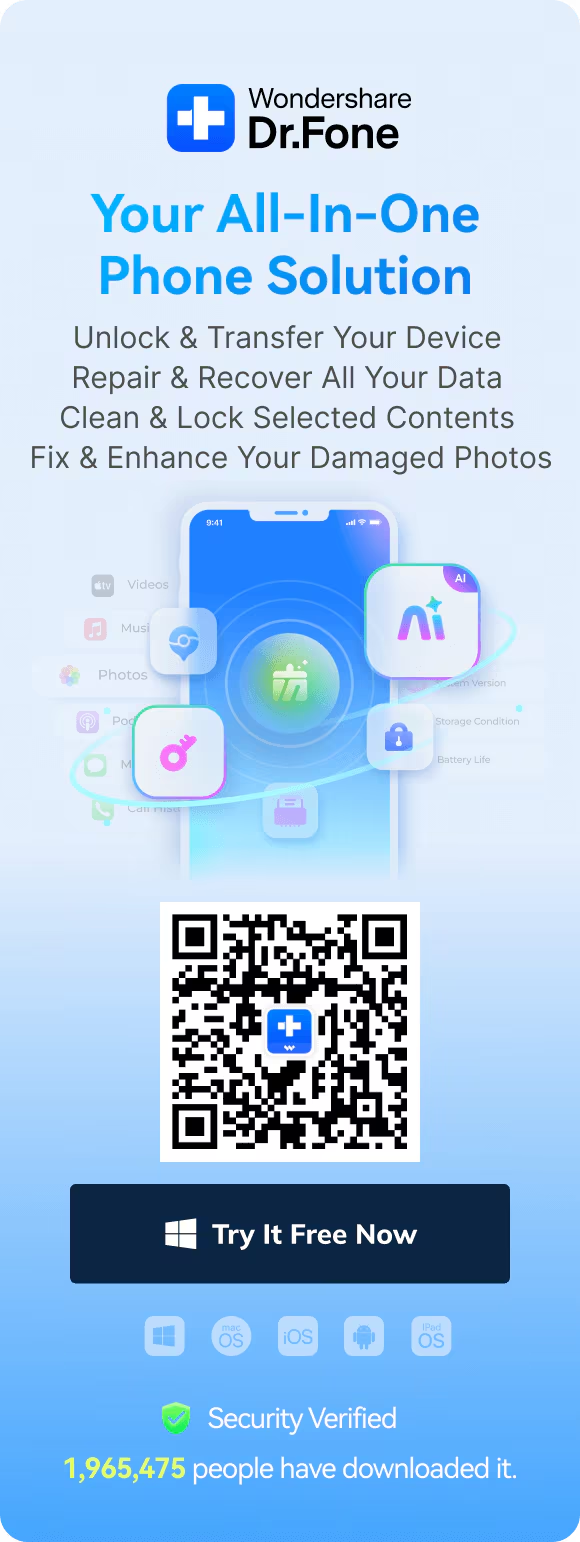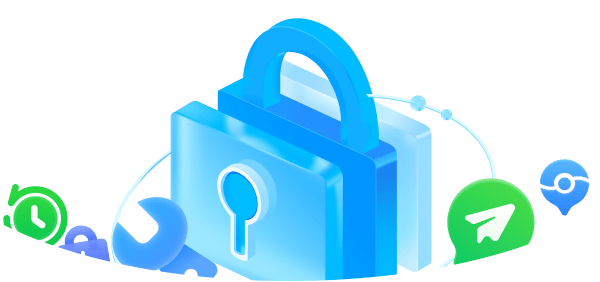Are you worried about safety when using web browsers? Many websites are filled with ads and tracking scripts. It makes browsing unsafe for users. This situation turns your browser into a battleground against unwanted intrusions and serious privacy threats. It is crucial for users to choose the safest internet browser available. Selecting the right one can surely help protect your personal information online.
This article will identify and evaluate the best secure browser options available in 2025. We aim to provide you with practical tips to enhance your online privacy. By understanding your options, you can make informed choices that better protect your data while you surf the web.
In this article
Part 1: Common Threats Faced by Users While Browsing the Internet
Online threats are becoming more common and complex, putting users at risk. As technology changes, cybercriminals come up with new ways to exploit weaknesses. Therefore, it is important to understand these threats to keep yourself safe and protect your personal information. Being aware of these dangers can help you take steps to avoid attacks. Knowing about these threats can also help you choose the best secure web browser for your online safety.
- Phishing Attacks: These attacks trick you into giving away sensitive information through fake emails. Cybercriminals create convincing messages to get you to share passwords or financial details. If you're not careful, phishing can lead to identity theft and financial losses.

- Password Breaches and Data Leaks: Hackers can break into accounts, putting your sensitive data at risk. When companies have breaches, your information might get exposed which can affect many people. These incidents can have long-lasting impacts on your online life and privacy.

- Malware and Ransomware: Malware is harmful software that can damage your device or steal data. Ransomware locks you out of your files and demands money to get them back. Both types of attacks can disrupt your life and lead to financial problems.

- Remote Work Threats: As more people work from home, they face new risks in their own space. Cybercriminals target home networks and devices because they are often less secure. This trend has led to more attacks on remote workers. Using the safest web browser for iPhone or other devices can help protect you from these threats.

Part 2: Best Secure Browsers for iPhone and Mac
Many users are often swayed by the numerous web browsers available today, which can bring them significant dangers. These browsers can expose users to risks that they may not recognize. With so many options, it is easy to overlook potential risks associated with certain browsers. Users may not realize the dangers associated with using certain browsers online, including the need for the best safest browser.

This section highlights the most secure browsers available for iPhone, Mac, and Windows devices. Each of these browsers offers unique features that enhance your online safety and privacy. We will explore the strengths and weaknesses of each browser to help you make an informed choice for secure browsing.
1. Safari

Safari is Apple's default web browser, known for its strong privacy features. Many people consider it the most secure browser for Mac due to its robust security. It runs smoothly on iPhones, iPads, and Macs while helping users browse safely. Safari blocks many trackers automatically and provides a privacy report for users.
2. DuckDuckGo

DuckDuckGo is a privacy-focused browser that does not track users at all during their browsing sessions. It blocks ads and trackers and provides a smooth experience for users who value their privacy. This browser is ideal for those wanting to keep their data private while enjoying a safe and secure online browsing experience.
3. Mozilla Firefox

Mozilla Firefox is an open-source browser that prioritizes user privacy above all else. It offers numerous customization options and has strong security features built in for users who want complete control. Firefox blocks trackers automatically. It also provides essential tools to keep your data safe while browsing securely online.
4. Brave

Brave is known for its advanced security features and built-in ad blocker that works well. It blocks trackers and offers a fast browsing experience overall for users who prioritize speed and efficiency. Brave also has a unique rewards system that allows users to earn tokens for viewing ads voluntarily if they choose to participate.
5. Microsoft Edge

Microsoft Edge has improved in recent years. It focuses on user security features and privacy enhancements. It includes tools like tracking prevention and a built-in password manager. Thus, it is convenient for daily use. Edge works well with many websites and supports various extensions to enhance usability while browsing securely online.
6. Google Chrome

Google Chrome is one of the most popular web browsers worldwide today. It is widely used by millions of people across different platforms and devices. It offers fast browsing speeds along with a vast range of extensions available for customization purposes during use. Recently, Chrome has established itself as the most secure browser for Windows due to its new security features introduced.
Part 3: Browser Security Comparison
Finding the most secure browser is crucial for protecting your online data. This browser security comparison highlights key features like encryption, tracking protection, and privacy tools. Below is a detailed comparison to help you choose the best option.
| Browser | Encryption | Tracking Protection | Privacy Features | User Interface | Extensions/Add-ons |
| Safari | Strong TLS support; secure against MITM attacks. | Intelligent Tracking Prevention (ITP) blocks trackers. | Private Browsing, cross-site tracking prevention. | Clean, minimalistic, macOS integration. | Limited compared to others; App Store-based. |
| DuckDuck Go | HTTPS Everywhere ensures encrypted connections. | Blocks most trackers and third-party ads. | Burn Bar for clearing history, no data collection. | Lightweight, simple, focus on privacy. | No add-ons/extensions support. |
| Mozilla Firefox | Strong TLS and HTTPS-only mode. | Comprehensive Enhanced Tracking Protection (ETP). | Containers, robust settings customization, private browsing. | Customizable interface, user-friendly. | Wide array of add-ons. |
| Brave | Always-on HTTPS and enhanced privacy. | Aggressively blocks trackers and ads by default. | Built-in Tor support, crypto wallet, privacy-first focus. | Intuitive, ad-block statistics displayed. | Supports most Chrome extensions. |
| Microsoft Edge | TLS and Microsoft Defender SmartScreen. | Moderate tracking prevention (3 levels). | InPrivate mode, integration with Microsoft products. | Sleek, modern design, customizable. | Compatible with Chrome extensions. |
| Google Chrome | Strong TLS encryption. | Minimal tracker blocking unless paired with extensions. | Incognito mode, but data collection is extensive by default. | Highly polished, efficient, but resource-intensive. | Industry-leading extension library via Chrome Web Store. |
BONUS TIPS: Boost Your Privacy with Dr.Fone App - App Lock (iOS)
Keeping personal data safe on your iPhone is more important than ever. Many people face challenges securing sensitive apps from unwanted access. If you're also wondering what is the safest browser to use, you're not alone in seeking better privacy solutions. For protecting apps, Dr.Fone App - App Lock (iOS) can make a big difference.
Dr.Fone App - App Lock (iOS) is designed to protect your apps and privacy. It lets you lock or hide apps based on time or location. It can also give you smart control over who can access your apps and when. Let's learn more!
Key Features
- Protect apps with passwords, Touch ID, or Face ID for complete security.
- Hide selected apps entirely from your phone's home screen for extra privacy.
- Enable automatic app locking or hiding based on your time or location preferences.
- Offers an intuitive and straightforward setup process.
Dr.Fone App - App Lock (iOS)
Enhanced App Security: Lock/Hide Apps Based on Time and Location
- Lock apps to prevent accidental deletions or downloads.
- Hide apps from the home screen for enhanced privacy.
- Face ID/PIN code protection for secure access.
- Supports iOS 16 and above.
How to Use Dr.Fone App - App Lock (iOS)
01of 04Launch the App Lock Tool
Download and open the Dr.Fone app on your iPhone. Tap the AI Tools Toolbox, go to the Discover page, and select the App Lock card to access the settings.
(Note: Available on iOS 16 and above.)

02of 04Add and Organize App Groups
Tap Please add a group first to create a new group, select the apps you want to lock or hide, rename the group, and tap Save.

03of 04Configure Lock or Private Modes
Choose Locked Mode to lock apps on your home screen or Private Mode to hide them completely. Tap the app group card to toggle between locked or hidden states.

04of 04Set Restrictions by Zone or Time
Select Restrict Zone to lock apps based on location, or choose Restrict Time to lock apps at specific times of the day and days of the week. Protect your settings further by using Face ID or a PIN code for added security.

Why Use Dr.Fone App - App Lock (iOS)
- Keeps your personal apps and data safe from unauthorized access.
- Lets you automate security using time-based or location-based actions.
- Works smoothly with iOS features like Face ID and Touch ID.
- Provides an easy-to-use, effective all-in-one privacy solution.
If protecting apps is just as important as choosing the safest browser to use, then Dr.Fone App - App Lock (iOS) is a perfect choice. With this app, your digital privacy is always in your hands.
Conclusion
When browsing online, you are exposed to several risks. It can be tracking, malware, and unauthorized access to your personal data. Choosing a secure browser can help protect against these threats. If you're wondering which is the safest browser, it's important to go beyond just browser selection and also safeguard your apps and information.
Dr.Fone App - App Lock (iOS) is a great tool to enhance your online privacy. It allows you to lock and hide apps and set time or location-based restrictions. It also allows you to use advanced security features like Face ID or PIN. Take control of your security today. Download Dr.Fone now!
FAQ
-
Q: Can I unlock apps easily after locking them?
A: Yes, you can unlock apps using Face ID, a PIN code, or by adjusting the settings. It's a quick and simple process.
-
Q: Will Dr.Fone App Lock slow down my iPhone?
A: No, Dr.Fone App - App Lock (iOS) is designed to work efficiently without affecting your device's performance. It operates seamlessly in the background.





























Selena Lee
staff Editor
Generally rated4.5(105participated)